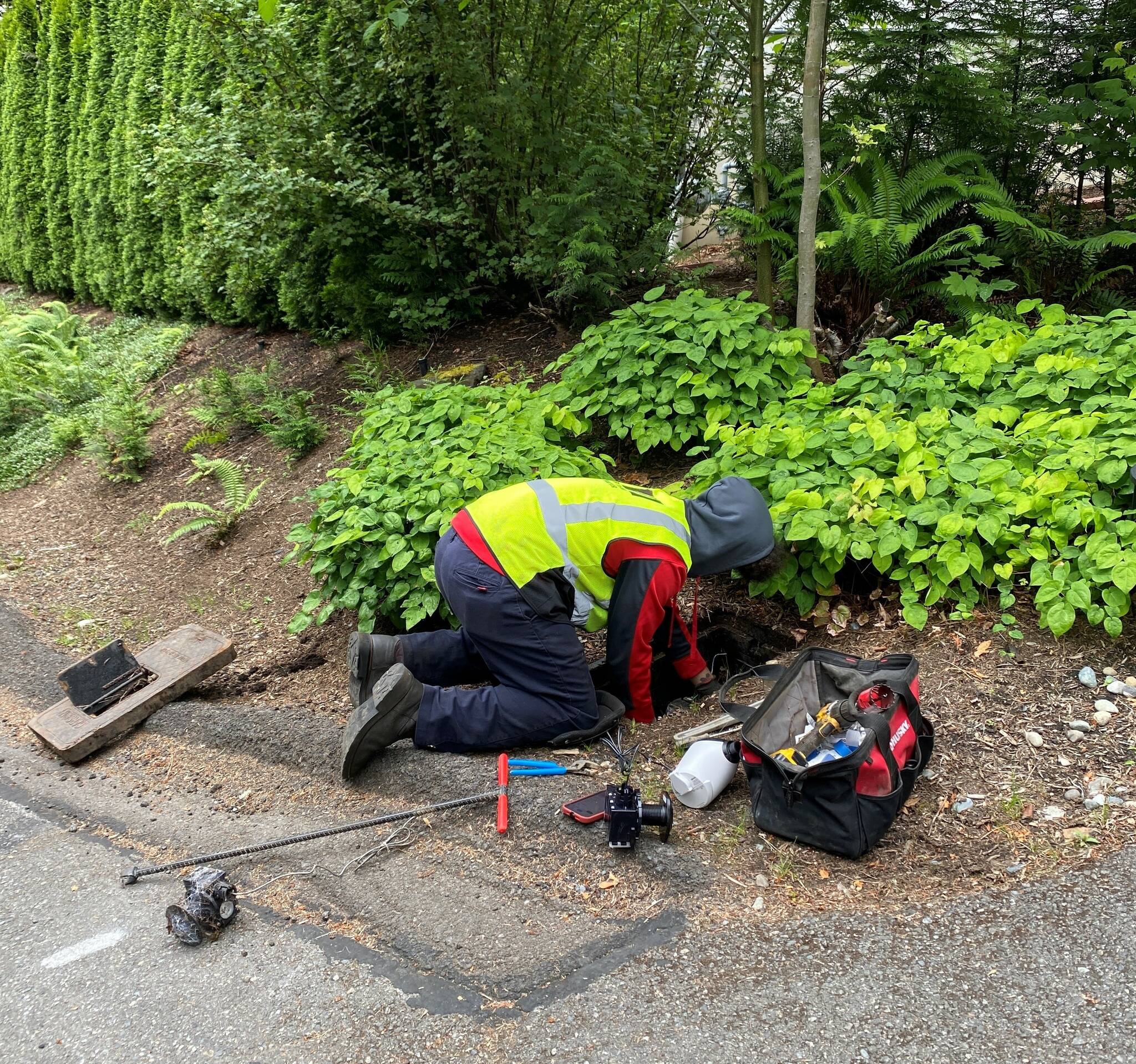A mammoth task is now complete on the city of Mercer Island’s water meter replacement front.
From March through August, crews from Pedal Valves Inc. roamed the Island and installed 7,416 new state-of-the-art digital water meters as part of the city’s Advanced Metering Infrastructure (AMI) Project. In total, about 7,900 fresh meters have been installed within the last year, with city workers handling the balance of the replacements as the need arose.
City Public Works Deputy Director Alaine Sommargren said that Pedal Valves installers did an incredible job with the massive undertaking, during which they experienced “a little trial by fire” with some complex tasking on portions of the Island’s steep-sloped topography.
“Mercer Island is not a slam dunk. It’s not the easiest place to do this work, but they did it,” said Sommargren, adding that Pedal Valves was a subcontractor of the city’s main contractor Ferguson on this project.
With the new meters — which are estimated to last about 20 years — the city can pull data through radio transmission to obtain hourly statistics. A pair of transceiver-equipped antennas are currently extracting the data from a portion of the meters, and four more antennas are forthcoming over the next year.
“It’s advantageous for the city because we can do things like leak detection really easily. Also, it doesn’t require us to drive around the Island and look at every single meter independently,” said Sommargren, who noted that the city commenced the project in 2018. The city has never done a wholesale meter replacement, and 70% of the recently replaced meters were over 15 years old.
Mercer Island City Council appropriated the full project — which also includes antenna installation, permitting, Puget Sound Energy tasks and more — for around $7.3 million as part of the city’s capital program. The contract with Ferguson rolled in at $5.1 million within the above total, Sommargren said.
“That money actually comes from the water fund, which is paid into by rate payers incrementally,” she added.
ANTENNAS AND PORTAL
Sommargren is equally thrilled to delve into the final elements of the robust AMI Project that latches the whole deal together: the antennas and online customer portal where residents can obtain their water usage data and pay bills.
Presently, the two antennas are mounted around mid-Island atop the Island Crest Park ballfield lights and the reservoir lattice tower. At those base stations, the antennas range from about eight to nine feet tall and one and a half to six inches wide. The Island Crest Park antenna is perched at 80 feet and the reservoir device is secured at approximately 110 feet.
Following a public hearing and permit approval, the antennas were put into action within the last couple months.
“We installed them and flipped them on right away, because we knew that starting to be able to pull this data was really, really key to convincing people this is so worth it,” Sommargren said.
During a propagation study, city staffers discussed where to place the antennas to receive optimal signal coverage to withdraw the data from every meter when all six are in operation. The remaining four antennas are slated to be mounted at 55 feet in other key spots on the Island. Antenna No. 3 — which is planned to be mounted adjacent to West Mercer Way near Roanoke Park — sits in the middle of the permitting process, and Public Works staff will seek authorization to proceed on the last three aerials at the Sept. 17 city council meeting.
“We want to make sure that we get the rest of these up so that everyone can benefit from this when the portal comes online,” Sommargren said.
Speaking of the portal, Sommargren hopes to have it online by the conclusion of this year because residents are anxious to access their hourly water use data and control their water use. For now, the city can obtain the data on the back end of the system, and utility billing team members have answered some residents’ questions about their water usage and bills.
“(The portal) gives them some information about why their water bill might be higher than usual. We’ve never had this capability before. When this system is fully up and running, they will be able to do that,” she said.
Sommargren explained that customers and the city will also be able to set up notifications to check on water usage and make any alterations, if necessary.
“It actually allows the city to really make sure that water is being conserved. Because if we’re notified of a potential leak early on and we can deal with it, that means we’re not losing water in our system,” she said. “So it reduces unaccounted water loss in the city, which is a really big deal.”
For more information, visit https://letstalk.mercergov.org/meterproject


